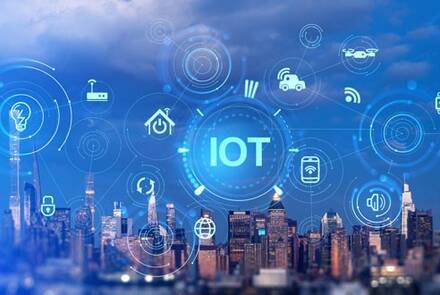Legal and Ethical Considerations in Smart Cities and IoT
In the era of smart cities, where the integration of Internet of Things (IoT) technologies promises unprecedented efficiency and innovation, the legal and ethical dimensions of these advancements cannot be overlooked. As urban environments become more interconnected, questions regarding data privacy, surveillance, and ethical use of technology come to the forefront. In this blog post, we delve into the legal and ethical considerations surrounding the use of IoT and Smart City technologies in urban environments.
- Data Privacy: Safeguarding Personal Information
One of the primary concerns in the smart city landscape is the collection and utilization of personal data. As IoT devices gather information from various sources—smartphones, sensors, and surveillance cameras—it becomes crucial to establish robust data privacy regulations. Smart cities must adhere to stringent data protection laws to ensure that individuals' personal information is handled responsibly, transparently, and with the utmost security. - Surveillance and Citizen Privacy: Balancing Security and Individual Rights
The deployment of surveillance technologies, including facial recognition and video analytics, raises ethical questions about citizen privacy. Striking a balance between ensuring public safety and respecting individual rights is a delicate challenge. Smart cities need clear policies and regulations governing the use of surveillance technologies to prevent abuse and protect citizens from unwarranted intrusions into their private lives. - Consent and Transparency: Informed Participation
Ensuring that citizens are well-informed about the data collection practices in smart cities is crucial. Transparent communication and obtaining explicit consent for the collection and use of personal data empower individuals to make informed decisions about their participation in smart city initiatives. This transparency builds trust between city authorities and residents, fostering a collaborative and ethical approach to urban development. - Security Measures: Safeguarding Against Cyber Threats
The interconnected nature of IoT devices makes smart cities susceptible to cyber threats. Securing the data transmitted between devices and protecting the infrastructure from potential attacks is paramount. Smart cities must implement robust cybersecurity measures, including encryption protocols, regular software updates, and intrusion detection systems, to safeguard against unauthorized access and protect the integrity of the data collected (See also: The Imperative of Cybersecurity in Smart Cities Implementations). - Inclusivity and Accessibility: Bridging the Digital Divide
While the benefits of smart city technologies are vast, there is a risk of exacerbating existing social inequalities if access is not equitable. Ensuring that all segments of the population, regardless of socio-economic status, have access to and can benefit from these technologies is essential. Smart city initiatives should be designed with inclusivity in mind, addressing the digital divide and preventing the creation of urban environments that disproportionately benefit certain groups. - Data Ownership and Control: Empowering Citizens
Empowering individuals with control over their data is a cornerstone of ethical smart city development. Citizens should have the right to access and manage their own data, as well as the ability to determine how it is used. Establishing clear guidelines for data ownership and control helps protect individual privacy and fosters a sense of agency among residents in the evolving digital landscape. - Public Participation: Informed Civic Engagement
In the ethical implementation of smart city technologies, public participation is vital. Engaging citizens in decision-making processes, seeking their input on data usage policies, and involving them in the evaluation of smart city initiatives ensure that the technology aligns with the values and expectations of the community. This participatory approach contributes to a more ethical and people-centric urban development.
Forging a Responsible Digital Future
As smart cities continue to advance, navigating the legal and ethical considerations becomes integral to responsible urban development. By establishing clear regulations, prioritizing data privacy, fostering transparency, and actively engaging citizens, smart cities can pave the way for a digital future that not only embraces innovation but also upholds the rights and values of the communities they serve. Balancing technological progress with ethical principles is the key to creating urban environments that are not only smart but also just, inclusive, and respectful of individual rights.
For more information about Trigyn’s Smart City & IoT Solutions, Contact Us.






